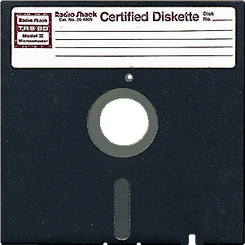Jonah is in LA, TJ is at EVO, and who knows where Scott is.
No Podcast This Week
Related Post
Episode 433: Kickstarter FailEpisode 433: Kickstarter Fail
The episode is posted a little late due to unforeseen circumstances, and focuses on Kickstarter videogames, both failures and successes. The podcast also asks Pokémon Go fans if they really needed those tracking software for the game.
This week’s news includes:
- “Other surprises” in store for NX, says Ubisoft
- Fixes promised for botched Marvel Ultimate Alliance ports
- Pokémon Go fans rage as tracking site shuts down
- PlayStation VR requires about 60-square feet of space to use
Let us know what you think.
Developer Wants License Keys For Console GamesDeveloper Wants License Keys For Console Games
 UK developer David Braben from Frontier Developments believes smaller development studios are in the worse position when it comes to re-sale of “pre-owned” video games. Since a developer only gets their cut of the profits when a game is sold new, pre-owned titles allow gamers to play games without paying the developer for the effort.
UK developer David Braben from Frontier Developments believes smaller development studios are in the worse position when it comes to re-sale of “pre-owned” video games. Since a developer only gets their cut of the profits when a game is sold new, pre-owned titles allow gamers to play games without paying the developer for the effort.
This also hurts larger publishers, but they’re able to recover because of the sheer volume of games and game titles. One idea David had, was to code each game with a unique license key like a PC game that gamers must enter before playing. This would kill the ability to re-sell video games back to the market for others to buy at a cheaper price (translation: better value).
The future shows a higher degree of downloadable games, which cannot be re-used or sold back to the market, but for now, developers have to deal with pre-owned video games cutting into their profit. Presumably you could have a great game with smaller sales and a high degree of resale in the pre-owned market.
Problem with this take on development? Besides large scale video game sellers like GameStop making 80% profit margins on resold games (rather than a 10-15% on new), gamers want a way to make back some of their money on expensive titles. When you’re paying $60 for a game and you beat it in a week or two, you want to resell it so you can invest in a future title.
My theory… make games more affordable so we don’t feel gouged on the price. We may decide to hold on to it longer and tell our friends about it. A good game reference and a reasonable price will increase sales every time. Don’t try to solve pre-owned problems when the problem is the publisher and the industry making huge game prices.
(Thanks, Kotaku)
Sony’s Software Development Beta ProjectsSony’s Software Development Beta Projects
 It seems we’ve seen a lot of great concepts from Sony for their PlayStation 3 product line but very little has managed to hit the software virtual shelves. We’ve heard of Sony’s Afrika for the PS3 back at E3 in 2006 and we’re looking at it for 2008’s holiday lineup.
It seems we’ve seen a lot of great concepts from Sony for their PlayStation 3 product line but very little has managed to hit the software virtual shelves. We’ve heard of Sony’s Afrika for the PS3 back at E3 in 2006 and we’re looking at it for 2008’s holiday lineup.
We’ve heard about Sony Home for years as well, but that’s now in some type of beta. It was supposed to be an open beta but that didn’t seem to work out and now it’s closed beta only. Recently they pushed out a firmware update that bricked PlayStation 3 consoles or at least screwed up many of them in varying levels.
Are they just really bad at software development and road map predictions? As a hardware development company they’ve put out some hardcore products, stone cold stable in terms of design and efficiency from the Walk Man to the PS3. Their products are practical in design, for the most part, fairly pretty, stable and function as designed. Yet they come up short on software time and time again.
One of the contributors at 2old2play had some things to say about Sony’s development efforts:
“Having worked at Sony as a Creative Designer two years ago, it doesn’t surprise me that they have still yet to release Home. While there, I was working on their Station Launcher application which was supposed to be released in late 2006. However, the Launcher app is still only in Beta to this day.” (2old2play.com)
In many ways their the anti-Microsoft in their approach and commitments. While Microsoft ships hardware that has what must be a 60% failure rate Sony ships hardware which works fairly well. On the flip side, Microsoft publishes a large quantity of software for all their products and has done very well in the business. Nobody can say it’s 100% perfect but it tends to get better with age or, at least, grow on you.
